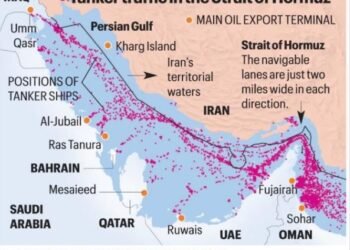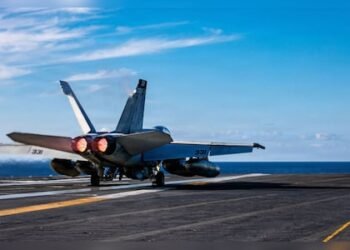Mohammed al-Jolani, once a key figure in Al-Qaeda, now leads the fight against the Assad regime. This in-depth analysis delves into his past, his evolving ideology, and the potential consequences of his leadership for Syria’s future.
BY PC Bureau
Mohammed al-Jolani, the enigmatic leader of Syria’s Islamist alliance, has emerged from obscurity to assume a pivotal role in the nation’s most dramatic political upheaval in decades. The rebels, under Jolani’s command, have declared the fall of President Bashar al-Assad’s regime, effectively ending over fifty years of Baath Party dominance.
On Saturday, rebel forces successfully seized the southern city of Daraa, a location that holds immense symbolic significance as the birthplace of the 2011 uprising against Assad’s government. This decisive victory marked the fourth city to fall from Assad’s control within a single week, unequivocally demonstrating the remarkable momentum of Jolani’s alliance.
Born Ahmed Hussein al-Sharaa in 1982, Jolani’s life journey has been far from ordinary. His early years were spent in Saudi Arabia, where his father pursued a career as an oil engineer. The family subsequently returned to Damascus, the city where his grandfather had settled after the Israeli occupation of Syria’s Golan Heights. These formative experiences profoundly shaped Jolani’s worldview, particularly during the second intifada in 2000. “I was 17 or 18 years old at the time, and I began contemplating how I could fulfill my duty to defend a people oppressed by occupiers and invaders,” Jolani reflected in a rare interview with PBS Frontline in 2021.
Jolani’s radicalization and subsequent ascent within the ranks of militant groups commenced with his involvement in Al-Qaeda in Iraq under the leadership of Abu Musab al-Zarqawi. A period of five years in detention temporarily thwarted his ambitions within the jihadist organization. However, the eruption of the Syrian civil war in 2011 provided Jolani with a renewed sense of purpose. Upon returning to Syria, he established the Al-Nusra Front, an entity that would ultimately become the local branch of Al-Qaeda.
In 2013, Jolani made a bold and decisive move, refusing to pledge allegiance to Abu Bakr al-Baghdadi, the future leader of the Islamic State. Instead, he chose to align himself with Al-Qaeda’s Ayman al-Zawahiri, a decision that effectively preserved his autonomy and enabled him to forge his own unique path within the intricate and complex web of Syrian militancy.
Today, Jolani is no longer a figure who operates from the shadows. Following a decisive offensive on November 27, he commenced signing statements using his real name—Ahmed al-Sharaa—a symbolic shift that signaled his transition to a more public and prominent role. He has made appearances in international media outlets and even ventured onto the streets of Aleppo, a city whose capture from government forces marks a significant turning point in the Syrian civil war.
Despite his militant origins, Jolani stands out distinctly among his peers. Possessing both education and a refined demeanor, he is renowned for his measured tone and pragmatic approach to challenges. Analysts like Jerome Drevon describe him as a leader who firmly believes that “the real world must guide your Islam, and that you cannot impose your Islam upon the real world.” This perspective has proven instrumental in garnering legitimacy for him among Syria’s fragmented opposition, as well as within the international observer community.
As Syria embarks upon an uncertain new chapter, Jolani’s remarkable evolution from an Al-Qaeda operative to a central figure in the rebellion raises profound questions about the future trajectory of the country and the specific role he will play in shaping it. Will his pragmatism and effective leadership steer Syria towards stability, or will the weight of his militant past cast a long and enduring shadow over the nation’s efforts at rebuilding? Only time will ultimately reveal the answer.













